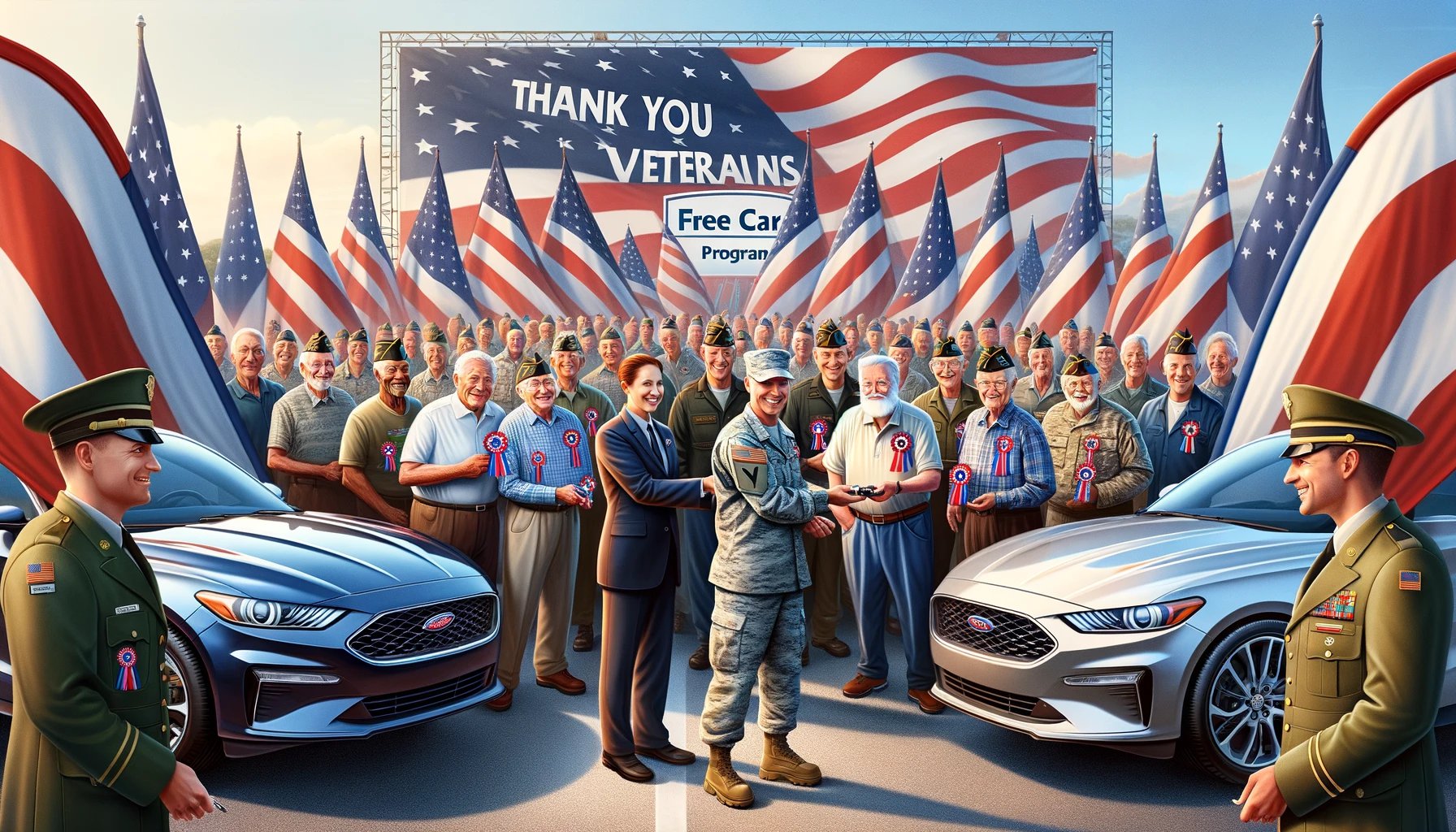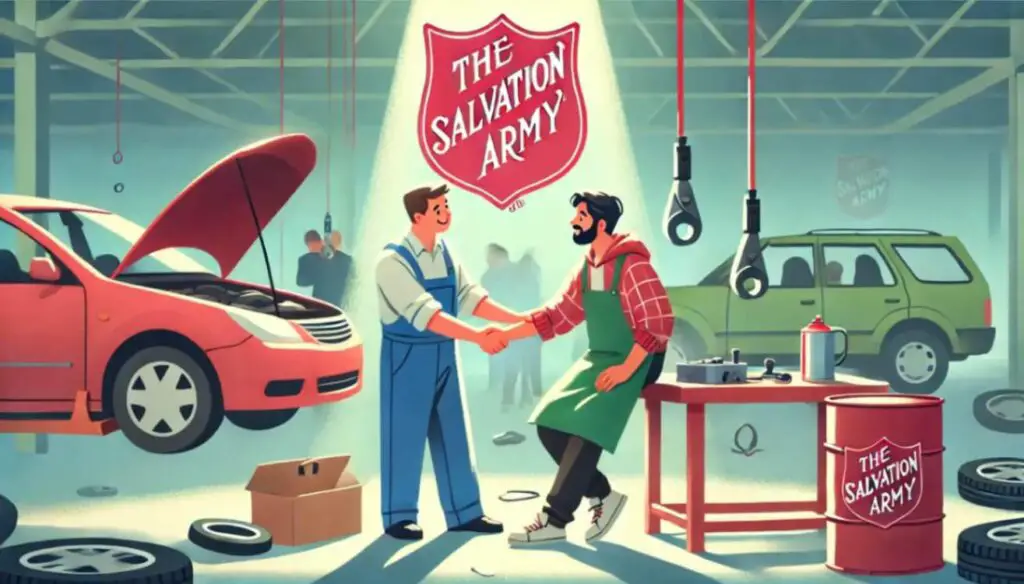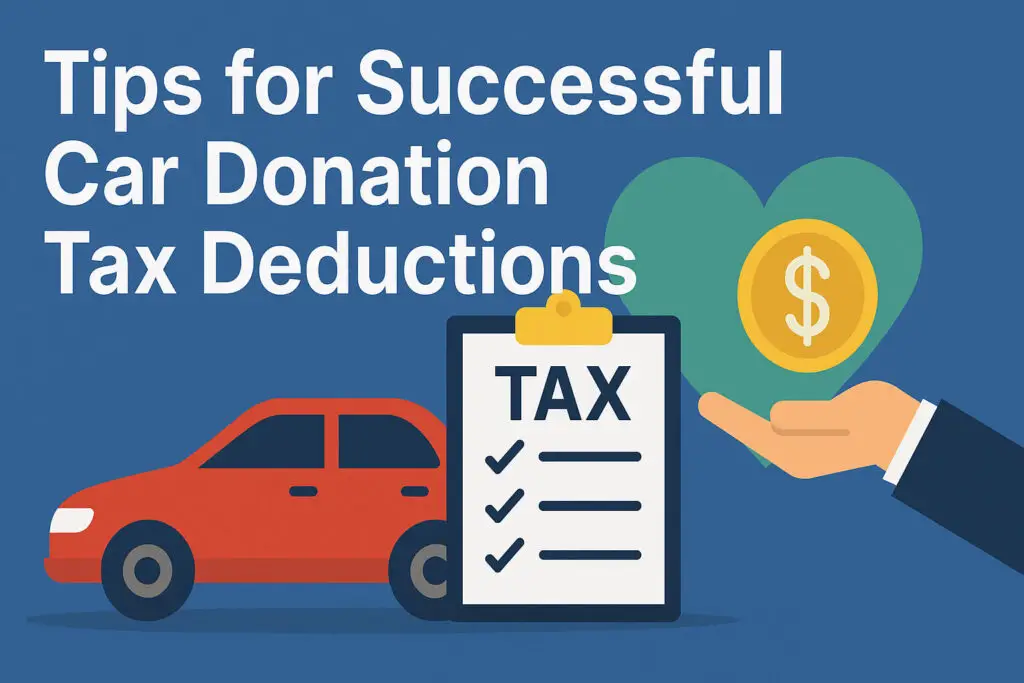In the pursuit of providing invaluable information to our esteemed veterans, we present a comprehensive guide on obtaining a free car for veterans. At times, the process may seem challenging, but rest assured, there are numerous organizations and programs dedicated to assisting eligible veterans in this endeavor. In this article, we will outline the steps you can take to explore your options thoroughly.
Contact Veterans’ Assistance Programs
The first step in your journey to acquiring a free car as a veteran is to reach out to organizations specializing in providing assistance to veterans. Here are some prominent examples:
Disabled American Veterans (DAV)
The Disabled American Veterans organization, commonly known as DAV, is a reputable nonprofit that offers support to disabled veterans. They can provide assistance in obtaining adaptive vehicles to veterans with service-connected disabilities.
Veterans of Foreign Wars (VFW)
The Veterans of Foreign Wars is another well-established organization that assists veterans in various ways. While they primarily focus on providing camaraderie and advocacy, they may have resources or connections to help veterans with transportation needs.
American Legion
The American Legion is committed to serving veterans and their communities. Contact your local American Legion chapter to inquire about any transportation assistance programs they may offer.
Wounded Warrior Project
The Wounded Warrior Project specializes in supporting veterans who incurred injuries or illnesses during their military service. They may have programs or resources dedicated to providing transportation solutions for veterans in need.
Operation Homefront
Operation Homefront is dedicated to assisting military families in various aspects, including transportation. Explore their programs and services to determine if they can help you in your quest for a free car.
Check Government Programs
In addition to veteran-focused organizations, the U.S. government offers several programs aimed at assisting veterans with their transportation needs. Explore the following options:
Department of Veterans Affairs (VA)
The Department of Veterans Affairs may provide grants to eligible veterans for the purchase of adaptive vehicles, especially if they have service-connected disabilities. Contact your local VA office to inquire about available resources.
State Agencies
Some states have programs that offer free or discounted vehicles to veterans in need. These programs can vary by state, so research your state’s specific offerings to determine your eligibility.
Nonprofit Organizations
Numerous nonprofit organizations across the country focus on assisting veterans in various ways, including providing free or low-cost vehicles. Here are a few notable ones:
Cars for Veterans
Cars for Veterans is a nonprofit organization that specializes in providing vehicles to veterans in need. They have a straightforward application process, and their mission is to improve the lives of veterans through the gift of transportation.
Vehicles for Veterans
Similar to Cars for Veterans, Vehicles for Veterans is dedicated to helping veterans access reliable transportation. They accept vehicle donations and then provide them to veterans who meet their criteria.
Purple Heart Foundation
The Purple Heart Foundation supports veterans who have been awarded the Purple Heart medal. They may have programs or resources that can assist you in obtaining a free car.
Community and Local Resources
Don’t underestimate the power of your local community. Reach out to local charities, churches, and community organizations in your area. They often have programs or connections that can help veterans in need of transportation.
When searching for ways to obtain a free car as a veteran, it’s crucial not to underestimate the power of your local community. Local charities, churches, and community organizations often have programs, connections, and resources specifically aimed at assisting veterans in need of transportation.
Local Charities
Many local charitable organizations are deeply rooted in their communities and are dedicated to helping those who live within them. Veterans can benefit from these organizations’ support in various ways, including acquiring free cars.
Local charities may have partnerships with car dealerships, businesses, or generous individuals who are willing to donate vehicles to veterans in need. These partnerships can result in the availability of free or heavily discounted cars for eligible veterans.
Churches
Local churches frequently engage in outreach programs that extend support to veterans and their families. Churches may have congregants or members who are willing to contribute to the community by donating vehicles or facilitating connections with organizations that offer free cars.
It’s advisable for veterans to reach out to their local churches, discuss their transportation needs, and inquire about any ongoing initiatives or assistance programs tailored for veterans.
Community Organizations
Community organizations serve as the backbone of local support networks. They are often well-connected and aware of the resources available to assist veterans. These organizations may include veterans’ service organizations, neighborhood associations, and civic groups.
Veterans can benefit from connecting with these community organizations and sharing their specific transportation requirements. Community leaders and members may have valuable insights into available resources or may be able to provide guidance on accessing free cars for veterans.
Networking within Your Community
Effective networking within your local community can also be instrumental in securing transportation assistance. Attend local events, veterans’ gatherings, or community meetings to meet fellow veterans and community members who may have insights or leads on free car opportunities.
Additionally, consider joining social media groups or online forums specific to your area. Sometimes, local businesses or individuals offer free cars to veterans through these online platforms. Engaging with your community both in person and online can expand your network and increase your chances of finding the support you need.
Online Resources
In today’s digital age, the internet serves as a powerful tool for veterans seeking assistance, including the possibility of obtaining a free car. There are numerous online platforms dedicated to veterans’ causes, offering a wealth of information, resources, and opportunities. By exploring websites, forums, and social media groups dedicated to veterans, you can uncover potential avenues for acquiring a free vehicle.
Veterans’ Websites
Several websites are specifically designed to cater to veterans’ needs and provide information on available resources. These websites often feature sections or articles on transportation assistance programs, including those that offer free cars. Some well-known veterans’ websites to explore include:
- VA.gov: The official website of the U.S. Department of Veterans Affairs provides information on various programs and benefits available to veterans. Check for updates on transportation assistance programs.
- Military.com: This comprehensive platform offers articles, forums, and resources for veterans. Look for sections on financial assistance and transportation support.
- Veterans Today: Veterans Today is an online news source that covers a wide range of topics, including veterans’ issues. Check their articles and forums for insights into available transportation assistance.
Online Forums
Online forums provide a space for veterans to share their experiences and connect with others facing similar challenges. These forums often contain valuable information on available resources and firsthand accounts of veterans who have successfully obtained free vehicles. Some popular veterans’ forums include:
- Veterans Benefits Network (VBN): VBN is a community-driven forum where veterans discuss benefits, including transportation assistance programs.
- HadIt.com Veterans Forum: This forum covers various veterans’ topics, including benefits and financial assistance. Explore relevant threads for transportation support.
- Military Forums: Military.com hosts active forums where veterans share their knowledge and experiences, making it a valuable resource for transportation-related discussions.
Social Media Groups
Social media platforms have become hubs for veterans and organizations dedicated to supporting them. Joining relevant social media groups can connect you with individuals, businesses, and nonprofits that occasionally offer free vehicles to veterans in need. Popular platforms for such groups include Facebook, Twitter, and LinkedIn.
- Facebook Groups: Search for veterans’ groups on Facebook, where members may post opportunities or leads related to free cars for veterans.
- Twitter: Follow organizations and individuals within the veterans’ community on Twitter. Sometimes, offers and assistance programs are shared via tweets and retweets.
- LinkedIn: Connect with professionals and organizations in the veterans’ sector on LinkedIn. Occasionally, job opportunities and assistance programs are posted on this platform.
Be Cautious Online
While online resources can be incredibly valuable, it’s essential to exercise caution and verify the legitimacy of offers or assistance programs. Scammers may try to take advantage of veterans seeking help. Always research and confirm the credibility of any individual or organization before sharing personal information or accepting offers.
In conclusion, the internet has opened up a world of opportunities for veterans seeking assistance, including the chance to obtain a free car. By exploring veterans’ websites, engaging in online forums, and joining social media groups, you can tap into a vast network of information and support. Remember to stay vigilant and verify the credibility of offers to ensure a safe and successful journey toward acquiring a free vehicle.
Apply for Grants
Explore Vehicle Donation Programs
Vehicle donation programs operated by charities and nonprofits offer a valuable avenue for veterans in need of transportation assistance. These programs enable individuals and organizations to donate vehicles, which are then provided to veterans who require reliable transportation. To explore and potentially benefit from these programs, consider reaching out to organizations like Goodwill, Salvation Army, and local charities that offer such initiatives.
Goodwill Vehicle Donation Program
Goodwill is a well-known charitable organization with a mission to enhance the lives of individuals and communities through the power of work. Goodwill operates a vehicle donation program that allows individuals to donate their cars, trucks, or other vehicles. These donated vehicles are then sold or auctioned, and the proceeds are used to support various Goodwill programs, including those designed to assist veterans.
To participate in Goodwill’s vehicle donation program:
- Visit the official Goodwill website or contact your local Goodwill organization to learn more about the program’s specifics in your area.
- Follow the provided instructions for vehicle donation, which may include details on how to schedule a pickup or drop-off location.
- Once your vehicle is accepted and processed, the funds generated from its sale contribute to Goodwill’s efforts to assist veterans in your community.
Salvation Army Free Vehicle Donation Program
The Salvation Army is another renowned nonprofit organization that operates a vehicle donation program aimed at helping veterans and other individuals in need. The Salvation Army accepts donations of various types of vehicles, such as cars, trucks, boats, and recreational vehicles.
To donate your vehicle through The Salvation Army:
- Visit The Salvation Army’s official website to find information on their vehicle donation program, including eligibility requirements and donation procedures.
- Follow the outlined steps to submit your donation request or schedule a pickup if applicable.
- Once your vehicle is donated and processed, the proceeds from its sale may be directed toward assisting veterans and other community programs.
Local Charities and Nonprofits
In addition to national organizations like Goodwill and The Salvation Army, consider exploring local charities and nonprofits in your area that offer vehicle donation programs. Many local organizations operate similar initiatives with a focus on supporting veterans and individuals in the community who require transportation assistance.
To identify local charities and nonprofits with vehicle donation programs:
- Conduct online research to locate organizations in your area that accept vehicle donations.
- Contact these local organizations directly to inquire about their donation process, eligibility criteria, and how the vehicles are allocated to veterans in need.
- Schedule a donation or drop-off following their specific guidelines.
By exploring both national and local vehicle donation programs, you can contribute to the assistance of veterans while also potentially benefiting from a reliable means of transportation. These programs not only provide essential vehicles to veterans but also help strengthen community support networks for those who have served their country.
Prove Eligibility
When seeking assistance to obtain a free car as a veteran, it’s crucial to prove your eligibility by providing the required documentation. Different programs and organizations may have varying eligibility criteria, but common documentation includes proof of your veteran status, income level, and specific needs. Here’s how you can ensure you have all the necessary paperwork and information ready when applying for assistance:
Proof of Veteran Status
- DD214 Form: The DD214 (Certificate of Release or Discharge from Active Duty) is a critical document that verifies your military service and discharge status. Ensure you have a copy of your DD214, as it’s often required to prove your veteran status. If you don’t have a copy, you can request one through the National Archives or your respective military branch.
- Military ID: Your military identification card can also serve as proof of your veteran status. Ensure it is current and readily available, as some programs may accept this form of documentation.
Income Verification
- Tax Returns: Many assistance programs require proof of your income level to determine eligibility. Gather copies of your recent tax returns, including W-2 forms and other income-related documents. These documents provide a comprehensive view of your financial situation.
- Pay Stubs: If you are currently employed, collect recent pay stubs to demonstrate your income. Pay stubs can offer real-time insight into your earnings and financial stability.
- Social Security Statements: Social Security statements provide details about your monthly benefits or income. Include these statements in your documentation if applicable.
Specific Needs and Requirements
- Medical Records: If your need for a free car is related to a service-connected disability, gather medical records and documentation that support your condition. This can include doctor’s reports, medical history, and disability ratings from the Department of Veterans Affairs (VA).
- Service Records: In cases where your specific needs are related to your military service (e.g., injuries or deployments), provide service records or deployment orders as evidence.
- Letters of Recommendation: Some organizations may require letters of recommendation or referrals from individuals or agencies that can vouch for your need and eligibility. Ensure you have these letters prepared if requested.
Additional Information
- Identification: Have a valid driver’s license or state-issued ID card ready, as these are often needed when applying for assistance programs.
- Proof of Residency: Some programs may require proof of your current residency, such as utility bills or lease agreements. Make sure these documents are readily accessible.
- Bank Statements: Depending on the program, you may need to provide bank statements to verify your financial situation.
- Insurance Documents: If you have existing car insurance or other types of insurance, retain copies of these documents, as they may be requested.
It’s essential to keep these documents organized and in a secure location. Create digital copies as well to have a backup in case the originals are lost or damaged. When applying for assistance programs, follow the specific guidelines provided by each organization and submit the required documentation promptly. By proving your eligibility with accurate and complete documentation, you enhance your chances of receiving the assistance you need to obtain a free car as a veteran.
The Power of Persistence in Obtaining a Free Car as a Veteran
Obtaining a free car as a veteran is undoubtedly a noble pursuit, but it’s equally important to understand that this process may require time, effort, and unwavering persistence. Here’s why persistence is key and how to stay committed to your goal:
1. Diverse Eligibility Criteria
Different assistance programs and organizations may have varying eligibility criteria, and not all programs may align perfectly with your circumstances. Persistence is essential because you may need to explore multiple avenues, each with its own set of requirements.
2. Limited Availability
Free car assistance programs often operate with limited resources and vehicle donations. The demand for such assistance can be high, and available vehicles may be limited. It may take time for the right opportunity to become available.
3. Application and Processing Times
Grant applications, documentation reviews, and other processes associated with assistance programs can take time to complete. Patience is crucial while waiting for responses and decisions.
4. Evolving Opportunities
New opportunities and resources for veterans become available over time. Staying persistent means consistently monitoring changes in available programs and actively seeking out new options as they arise.
How to Stay Persistent:
- Set Realistic Expectations: Understand that the process may not yield immediate results. Be prepared for potential delays and setbacks.
- Stay Informed: Continuously research and stay informed about available assistance programs, grants, and organizations. New opportunities may emerge, so keep your options open.
- Network: Connect with other veterans, veterans’ organizations, and community members who may offer guidance and support in your quest for a free car.
- Follow Up: If you’ve submitted applications or inquiries, don’t hesitate to follow up with the respective organizations. A polite reminder can help keep your application on their radar.
- Utilize Online Resources: Online platforms, forums, and social media groups dedicated to veterans often share information about free car opportunities. Engage in these online communities to stay updated.
- Seek Local Assistance: Local charities, churches, and community organizations can be valuable resources. Visit them in person or contact them to inquire about any ongoing programs.
- Maintain a Positive Outlook: It’s easy to get discouraged during a lengthy process, but maintaining a positive attitude and staying focused on your goal can help you persevere.
- Consider Alternative Transportation: While pursuing a free car, explore temporary transportation solutions like public transportation, carpooling, or rideshare services to meet your immediate needs.
Remember that persistence is a virtue, and your determination to secure a free car as a veteran can ultimately lead to success. By staying committed to your goal, remaining adaptable, and continuously seeking opportunities, you increase your chances of finding the assistance you need to obtain a vehicle that suits your needs and circumstances.
Research Local Dealerships
Some car dealerships partner with organizations to provide discounted or free vehicles to veterans. Check with local dealerships and inquire about any ongoing initiatives or partnerships they may have with veteran support organizations.
Remember that eligibility criteria and availability may vary depending on your location, service history, and specific needs. It’s essential to research and reach out to various organizations and programs to increase your chances of finding assistance in obtaining a free car as a veteran.
Explore state-specific veteran assistance programs across the United States:
| State | Department | Service Description |
| Alabama | Alabama Department of Veterans Affairs | Various programs including transportation services |
| Alaska | Alaska Veterans Affairs | Transportation assistance including shuttle services and mileage reimbursement |
| Arizona | Arizona Department of Veterans’ Services | Transportation support for medical appointments and services |
| Arkansas | Arkansas Department of Veterans Affairs | Programs for transportation to medical appointments |
| California | California Department of Veterans Affairs | Comprehensive transportation assistance, shuttle services, mileage reimbursement, special license plates |
| Colorado | Colorado Division of Veterans Affairs | Transportation assistance for medical appointments and services |
| Connecticut | Connecticut Department of Veterans Affairs | Transportation support including shuttle services and mileage reimbursement |
| Delaware | Delaware Commission of Veterans Affairs | Transportation assistance for veterans |
| Florida | Florida Department of Veterans’ Affairs | Transportation assistance for medical appointments and critical needs |
| Georgia | Georgia Department of Veterans Service | Transportation support including shuttle services and mileage reimbursement |
| Hawaii | Hawaii Office of Veterans Services | Transportation assistance programs |
| Idaho | Idaho Division of Veterans Services | Transportation support for medical appointments and services |
| Illinois | Illinois Department of Veterans’ Affairs | Transportation assistance programs |
| Indiana | Indiana Department of Veterans Affairs | Transportation support including shuttle services and mileage reimbursement |
| Iowa | Iowa Department of Veterans Affairs | Transportation assistance for medical appointments and needs |
| Kansas | Kansas Commission on Veterans Affairs | Transportation support including shuttle services and mileage reimbursement |
| Kentucky | Kentucky Department of Veterans Affairs | Transportation assistance programs |
| Louisiana | Louisiana Department of Veterans Affairs | Transportation support for medical appointments and services |
| Maine | Maine Bureau of Veterans’ Services | Transportation assistance programs |
| Maryland | Maryland Department of Veterans Affairs | Transportation support including shuttle services and mileage reimbursement |
| Massachusetts | Massachusetts Department of Veterans Services | Transportation assistance for medical appointments and needs |
| Michigan | Michigan Veterans Affairs Agency | Transportation support including shuttle services and mileage reimbursement |
| Minnesota | Minnesota Department of Veterans Affairs | Transportation assistance for medical appointments and services |
| Mississippi | Mississippi Veterans Affairs Board | Transportation assistance programs |
| Missouri | Missouri Veterans Commission | Transportation support including shuttle services and mileage reimbursement |
| Montana | Montana Veterans Affairs Division | Transportation assistance for medical appointments and needs |
| Nebraska | Nebraska Department of Veterans’ Affairs | Transportation support including shuttle services and mileage reimbursement |
| Nevada | Nevada Department of Veterans Services | Transportation assistance programs |
| New Hampshire | New Hampshire Office of Veterans Services | Transportation assistance for medical appointments and services |
| New Jersey | New Jersey Department of Military and Veterans Affairs | Transportation support including shuttle services and mileage reimbursement |
| New Mexico | New Mexico Department of Veterans Services | Transportation assistance for medical appointments and needs |
| New York | New York State Division of Veterans’ Services | Transportation assistance programs |
| North Carolina | North Carolina Division of Veterans Affairs | Transportation support including shuttle services and mileage reimbursement |
| North Dakota | North Dakota Department of Veterans Affairs | Transportation assistance for medical appointments and services |
| Ohio | Ohio Department of Veterans Services | Transportation assistance programs |
| Oklahoma | Oklahoma Department of Veterans Affairs | Transportation support including shuttle services and mileage reimbursement |
| Oregon | Oregon Department of Veterans’ Affairs | Transportation assistance for medical appointments and needs |
| Pennsylvania | Pennsylvania Department of Military and Veterans Affairs | Transportation assistance programs |
| Rhode Island | Rhode Island Office of Veterans Services | Transportation assistance for medical appointments and services |
| South Carolina | South Carolina Department of Veterans’ Affairs | Transportation support including shuttle services and mileage reimbursement |
| South Dakota | South Dakota Department of Veterans Affairs | Transportation assistance for medical appointments and needs |
Read More :










2 thoughts on “Get Free Cars for Veterans: State-Specific Veteran Assistance Programs Across The United States 2025”